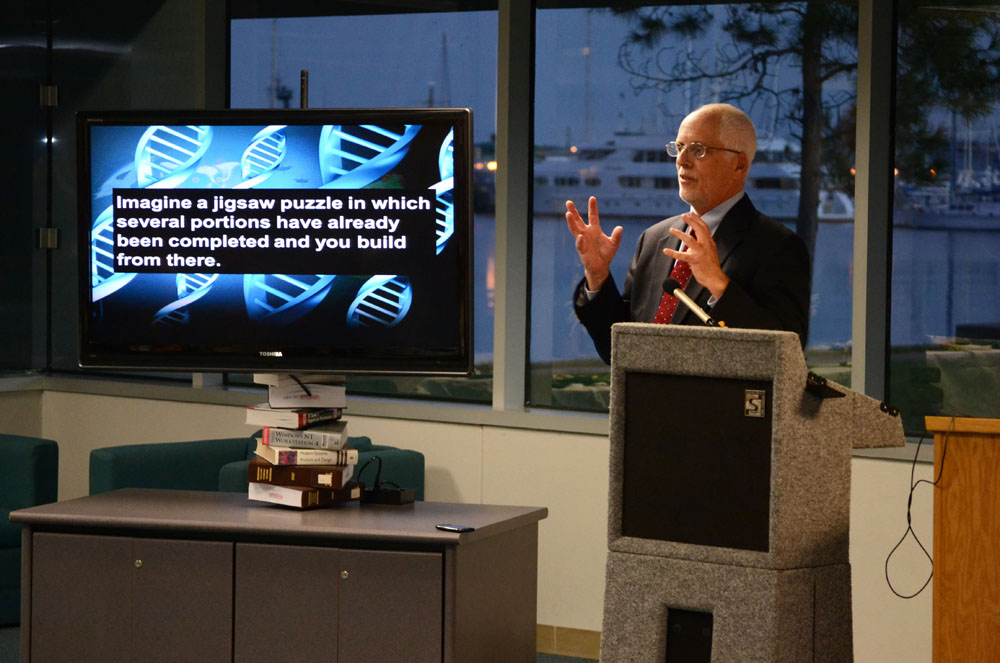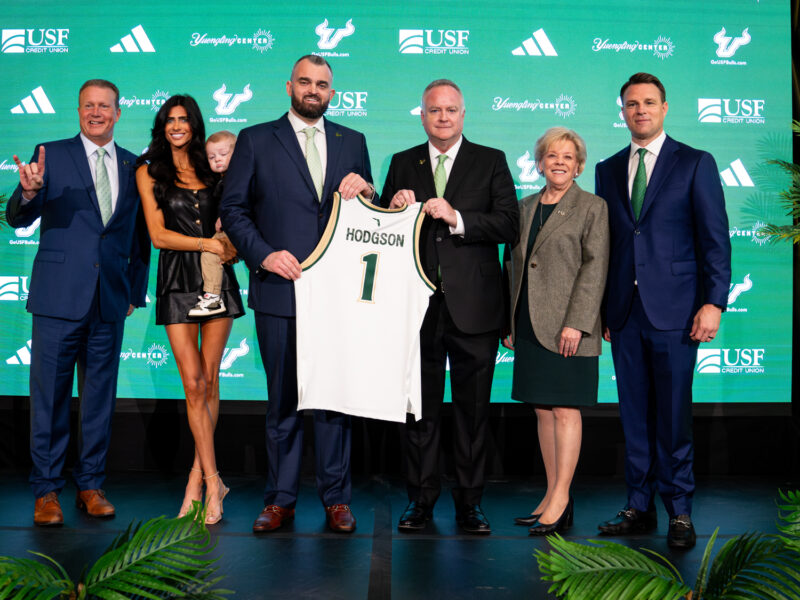Dr. Gary Litman, vice chairman of Pediatrics at USF Health, and distinguished university professor, spoke to a crowd about DNA with the lecture The Human Genome: 10 years and 247 Days Later. The first of five lectures celebrating the 10th anniversary of the human genome took place at the Nelson Poynter Memorial Library on Oct. 20.
Litman discussed the history of the Human Genome Project, and the impact of DNA and the genomics development has had on science. It’s been 10 years since the first publication of the analysis of the human in two leading science magazines. Litman said human bodies consist of 3 billion building blocks and roughly 27,000 genes that are the genetic blueprint for each individual.
“The genome of each individual is different and unique except for identical twins or cloned organisms,” he said.
The Human Genome Project began in Oct. 1990 with many years of work at the Department of Energy and the National Institute of Health. The objective of the project was to discover what comprises the genetic makeup of the human species.
“Surprisingly only 2 percent of the genes encode proteins” of which insulin and hemoglobin are examples, Litman said. He spoke about “the importance of finding what diseases are linked to what genes.” He also said several hundred aren’t understood at all and that about 50 percent are repetitive in what he called a “junk area,” but many cancers arise from this “junk area.”
“Some 2,500 to 3,000 genes can be affected by cancer and that 80 percent are acquired by say the environment, 10 percent are inherited, and another 10 percent are a mixture of inherited genes and germ line combo,” Litman said.
Litman also discussed the relationship between humans and other plants and animals, and how alike many species are. For example, the mouse and the fruit fly have just 5,000 different genes.
“At the very least, the Human Genome Project has revolutionized how we approach fundamental questions in biology and medicine,” he said.
“How we’ve evolved is fascinating and to know people are working on this is exciting,” said biology major Steven Navarro. “We are different by just a small percent and the more we understand we may one day possibly cure cancer.”
The second Festival of the Genome lecture, Dali and Science: A Paranoiac Universe with Peter Tush, curator of education at the Dali Museum, takes place on Oct. 27 at the Nelson Poynter Memorial Library. The Festival Genome events are open to the public. The reception starts at 6 p.m. and lecture starts at 7 p.m.
Photo by Daniel Mutter



